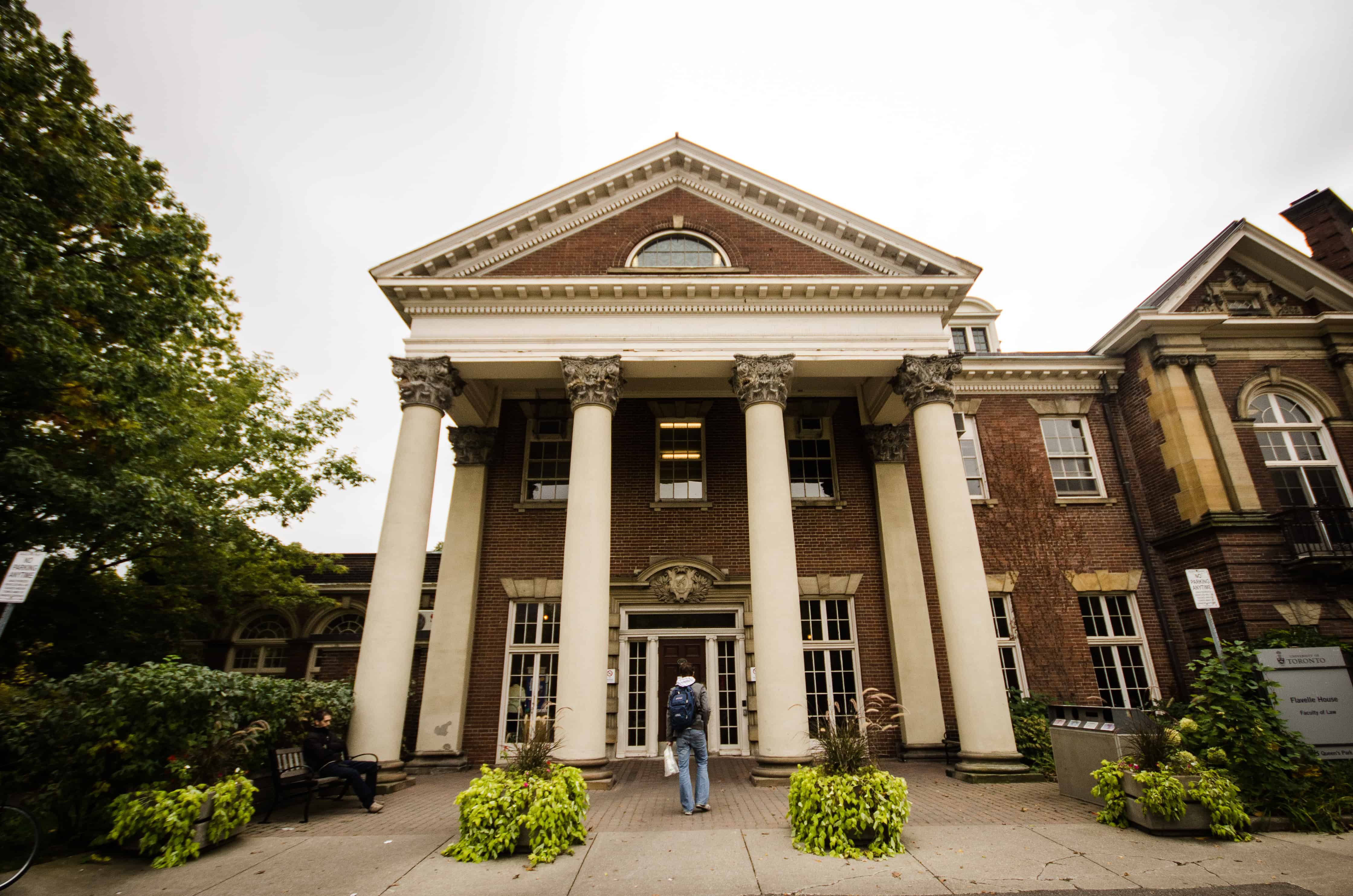The University of Toronto’s Faculty of Law has announced that it will be utilizing Victoria College as a transitional space, while the faculty prepares to undergo a dramatic renovation that will expand its current Falconer Hall location. Construction is expected to begin in summer 2013, and the faculty will be based in part out of Victoria College until at least 2015.
A town hall meeting held Wednesday was an opportunity for all students to better understand the use of Victoria College as a transitional space, and raise any questions or issues directly with the administration.
Alexis Archbold, assistant dean of students, explained how the renovations would work, including plans of the building and new facilities. She also explained that the spaces used within Victoria College would be convenient to access. Most of the classrooms to be used are in Old Vic or around the Victoria quadrangle. Law students will be able to access all libraries and common spaces.
Archbold also emphasized that making the transition easier for students and encouraging student involvement at every stage is a priority. At the town hall Wednesday, many expressed concern over whether the sense of community felt by U of T law students would be affected by the move.
Archbold says she is committed to ensuring that sense of community is not endangered. “I’m personally invested in this,” she said. “It’s important to me that we get it right.”
Another prominent concern raised at the town hall was library access. “The transitional library compared to the old one gives us less space than what we currently have,” said chief librarian John Papadopoulos. “We’re going to mitigate that by also using Emmanuel College Library and E.J. Pratt.”
Papadopoulos also said the law library plans to move a number of volumes over to Birge-Carnegie Library, using Emmanuel College Library and Robarts for the rest.
Papadopoulos’ solution to maintain access to research and reference information is to provide access to 90,000 digitized volumes, an idea welcomed by the attendees.
A student committee has been established to meet monthly with law school administrators to address concerns about the temporary space and renovations.
The Student Law Society (SLS) is also involved in the process, and has expanded its executive this year to be able to organize more activities, including tours of the transitional space. The SLS also helped organize the town hall meeting where the move was discussed earlier this week.
Victoria College was chosen because of its proximity to the law faculty, especially to Falconer Hall and Flavelle House. Both will remain open during construction.
Law faculty students will have access to Victoria College classrooms and receive priority-booking arrangement for event and extracurricular spaces. They will also have access to the new Goldring Student Centre being built on Charles Street, due to open in January 2013.
A lack of common student space at Victoria may be compounded by the law school’s migration. Archbold says the issue will be discussed with students as the renovation draws closer.
The renovations will focus on enlarging the Bora Laskin Law Library while keeping the historic Flavelle House mostly intact, as well as constructing a new building between Hoskin Avenue and Flavelle House.
The changes are expected to provide a new entrance on Hoskin Avenue, more dedicated study rooms and common spaces, and a café, among other benefits. Toronto-based architecture firm Hariri Pontarini was chosen in 2007 to design the building after students and faculty voted in a competition. Archbold also explained that students would be able to make suggestions and small changes to the design later in the year, as minor details come up for review.
A fundraising campaign to help finance the renovations has been ongoing since 2011, with many dedicated contributions coming from private firms, foundations and alumni. Over 90 per cent of the $54 million goal had been met as of early October.
A $11 million gift was announced earlier this month from Henry “Hal” Jackman, who has previously served as chancellor of the university and is a former lieutenant-governor of Ontario. The gift is the largest ever received by the law faculty, and the new building will be named the Jackman Law Building as a result.
The motivation behind the project is feedback from three external reviews — in 2001, 2006 and 2010 — which suggested that the faculty’s space constraints are one of few hindrances to student and faculty satisfaction.
“The lack of physical space creates a problem in terms of innovating, growing and responding to student issues,” said Archbold.
Students have indicated that booking space to host extracurricular activities, club meetings and other events has proven difficult in the past. Students and administrators say they expect this will be remedied by the renovations which will be providing general event and conference space, better access to student service offices, more student commons spaces and more classrooms. The faculty’s current space is being increased by 66 per cent, which enables them to offer a wider selection of upper-year courses and solve scheduling conflicts while retaining current class sizes.


